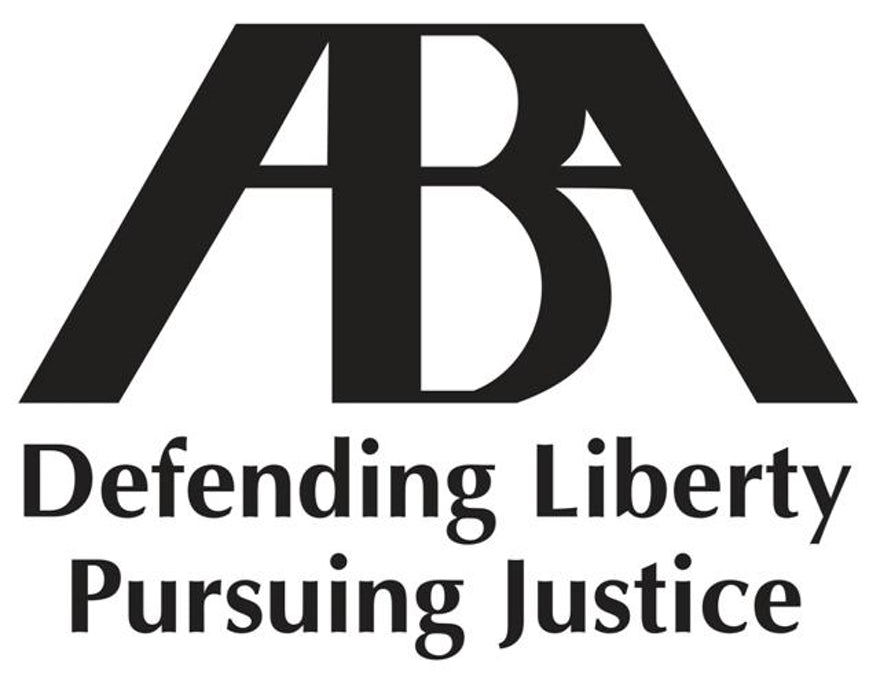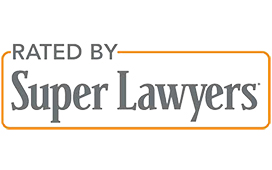Exploring Bankruptcy Alternatives for Individuals in 2023
Bankruptcy is a decision that carries significant long-term consequences, making it crucial to exhaust other alternatives before proceeding. Fortunately, there are several bankruptcy alternatives for individuals struggling with debt without resorting to bankruptcy. This blog post will guide you through various alternatives, including credit counseling, debt consolidation, debt settlement, and even lifestyle changes and legal protections, to help pave a path towards financial stability.
First, financial crisis can be overwhelming, often leading many to believe that bankruptcy is their only solution. However, Nevada Bankruptcy Attorneys is here to illuminate other routes to financial stability. We’ve had the privilege of assisting thousands of individuals across Nevada to escape the cycle of debt without resorting to bankruptcy, even preserving their cherished homes in the process. Our dedicated team tailors innovative solutions that cater to your unique financial circumstances, guiding you towards a future free of financial burdens. Explore your bankruptcy alternatives with us, and start your journey to a stress-free financial life. Allow our extensive experience and positive track record to work for you, guiding you to a debt-free future.
Short Summary
- Exploring alternatives to bankruptcy can help individuals manage their debt and avoid long-term damage to their credit history.
- Credit counseling, debt consolidation, balance transfer credit cards, and debt settlement are viable options with potential benefits & limitations that should be carefully considered.
- Lifestyle changes & budgeting strategies such as creating an emergency fund can also assist in managing finances responsibly & avoiding bankruptcy.
Understanding Bankruptcy and Its Impact

Filing bankruptcy is a legal process that allows individuals to get relief from debt which they are unable to pay. It helps those struggling with unsecured debt to reorganize their financial situation. However, filing for bankruptcy can cause substantial and enduring damage to one’s credit history, making it challenging to acquire loans or secure traditional credit cards for up to 10 years from the time of the court’s protection request. Therefore, considering alternatives to bankruptcy is advisable, as they are less severe and have fewer repercussions.
There are two main types of bankruptcy: Chapter 7 and Chapter 13. In a Chapter 7 bankruptcy, debts are eliminated in exchange for relinquishing nonexempt property, while in Chapter 13, an individual agrees to and adheres to a 3-5 year payment plan. Both types of bankruptcy come with their own set of advantages and disadvantages, but exploring alternatives can potentially save individuals from these long-term consequences.
Credit Counseling: A Path to Debt Management
Credit counseling is a viable alternative to bankruptcy that involves working with a nonprofit credit counselor to develop a budget and debt management plan. This method can help you create a debt-management plan with realistic payments and potentially lower interest rates, all while avoiding the lasting consequences of filing for bankruptcy.
In the following subsections, we’ll discuss how to find a reputable credit counseling agency, what to expect from credit counseling sessions, and the benefits and limitations of this approach.
Finding a Reputable Nonprofit Credit Counseling Agency
Although Chapter 7 and Chapter 13 bankruptcy filings offer some relief to individuals struggling with debt, they also come with their own set of consequences. Chapter 7 bankruptcy can result in the loss of nonexempt property, while Chapter 13 requires a commitment to a 3-5 year payment plan, often necessitating legal assistance and incurring additional fees.
Given these potential drawbacks, it’s crucial to consider other possibilities before resorting to bankruptcy.
What to Expect from Credit Counseling Sessions
During a credit counseling session, a counselor will analyze your finances and help you create a tailored plan to address your financial issues. They will also provide complimentary budgeting advice and an assessment of your debts and income.
The most efficient way to determine whether a debt management plan (DMP) or a debt management program is suitable for you is to arrange a session with a credit counseling agency. In doing so, you can gain a clear understanding of your financial situation and the best course of action to manage and ultimately eliminate your debt.
The Benefits and Limitations of Credit Counseling
Credit counseling offers numerous advantages, including the ability to create a manageable debt-management plan, the potential to reduce payments and interest rates, and the option to avoid bankruptcy.
However, there are also limitations to consider when dealing with unsecured debts. You’ll need to make full payments every month, and if you miss a payment, you may not be protected from collection actions. Additionally, you may still have to pay your debts in full, depending on the negotiation with your creditors.
It’s essential to weigh the pros and cons of credit counseling before making a decision.
Debt Consolidation: Simplifying Your Financial Obligations
Debt consolidation is another alternative to bankruptcy that can help simplify your financial obligations and potentially avoid bankruptcy. This process involves combining multiple debts into one with a fixed, predetermined payment. You can choose from various debt consolidation options, such as taking out a personal loan, borrowing against home equity, or utilizing a balance transfer credit card.
In the following subsections, we’ll discuss how to choose the right debt consolidation option, the pros and cons of debt consolidation loans, and the viability of balance transfer credit cards.
How to Choose the Right Debt Consolidation Option
When selecting a debt consolidation option, it’s important to research the different options available and understand their advantages and disadvantages. Some of the most common debt consolidation options include balance transfer credit cards, personal loans, home equity loans or lines of credit, peer-to-peer loans, and debt management plans.
By carefully considering each option and how it aligns with your financial situation and goals, you can make an informed decision that will help you manage and ultimately eliminate your debt.
The Pros and Cons of Debt Consolidation Loans
Debt consolidation loans can help streamline your debt by combining multiple debts into a single loan, potentially securing a lower interest rate in the process. However, there are potential downsides to consider, such as upfront fees and the risk of increasing your overall debt burden.
Additionally, obtaining a debt consolidation loan may lead to a short-term decrease in your credit score. It’s crucial to weigh the benefits and drawbacks of debt consolidation loans before deciding if this option is right for you.
Balance Transfer Credit Cards: A Viable Alternative?
Balance transfer credit cards are another option to consider for debt consolidation. These cards offer the opportunity to reduce the interest rate on outstanding balances for a limited period of time. This can lead to cost savings on interest payments and expedited debt repayment, as well as flexibility in terms of repayment and debt management.
However, it’s important to note that the balance remains the same and requires a certain level of discipline to ensure effective results. Additionally, it would not be prudent to add a consolidation loan and continue to use credit cards.
When used responsibly, balance transfer credit cards can be a viable option for managing debt and avoiding bankruptcy.
Debt Settlement: Negotiating with Creditors

Debt settlement is an alternative to bankruptcy that involves negotiating with creditors to pay a reduced amount than what is owed. By paying less than the original debt, you can potentially avoid bankruptcy and save money in the long run. However, it’s important to note that debt settlement can negatively impact your credit score for up to seven years.
In the following subsections, we’ll discuss how debt settlement works, its potential consequences, and tips for choosing a trustworthy debt settlement company.
How Debt Settlement Works
The process of debt settlement involves negotiating with creditors to reduce the amount of debt owed, either independently or through the use of a third-party company. This typically involves settling the debt by paying a portion of it in one lump sum, which is usually significantly less than the total amount due.
Debt settlement can be a risky method to reduce your debts and may come with tax implications. It’s essential to carefully consider the potential consequences and research any debt settlement companies you may be considering working with.
The Potential Consequences of Debt Settlement
Debt settlement can have a detrimental effect on your credit score, potentially decreasing it by up to 200 points, and this negative impact can remain on your credit report for seven years.
Additionally, any unpaid balance on a credit report after debt settlement is considered income and must be reported on a tax return, further complicating the financial situation.
Despite these potential consequences, debt settlement may still be a viable option for those with little to no other alternatives for debt relief.
Tips for Choosing a Trustworthy Debt Settlement Company
When selecting a debt settlement company, it’s crucial to verify their accreditation and licensing from respected organizations such as the American Fair Credit Council and the International Association of Professional Debt Arbitrators. Additionally, you should research the company’s reputation by consulting customer reviews and ratings from the Better Business Bureau.
Lastly, avoid working with any company that requests payment of a fee before negotiating a deal with your creditors, as this is a red flag for potential fraud.
Lifestyle Changes and Budgeting Strategies
In addition to the alternatives discussed above, lifestyle changes and budgeting strategies can also help reduce debt and avoid bankruptcy. By identifying areas for expense reduction, creating and sticking to a budget, and building an emergency fund, individuals can take control of their financial situation and work towards a debt-free future.
In the following subsections, we’ll explore practical tips for reducing expenses, maintaining a budget, and creating an emergency fund.
Identifying Areas for Expense Reduction
To identify areas for expense reduction, begin by monitoring your expenditures for a month to recognize where you can cut costs. This will help you pinpoint areas where savings can be found, such as daily expenses like groceries, utilities, and transportation.
Additionally, consider strategies such as negotiating more favorable terms with suppliers, purchasing in larger quantities, and utilizing generic or off-brand products to further reduce expenses.
Creating and Sticking to a Budget
Creating and sticking to a budget is essential for managing debt and avoiding bankruptcy. Begin by enumerating your income and outgoings, then set a target for how much you intend to save each month. Monitor your expenditures to ensure you are adhering to your budget, and consider setting up automatic transfers from your checking account to your savings account to help you stay on track.
In addition, avoid impulse purchases and shop around for the best deals to ensure you’re making the most of your budget.
Building an Emergency Fund
An emergency fund is a crucial component of any financial plan, as it serves as a safety net in times of unexpected expenses. It’s recommended to have sufficient savings to cover a period of 3 to 6 months’ worth of living expenses.
To establish a regular pattern of contributions, consider setting up automatic transfers from your checking account to your savings account. Regularly check your savings account balance and track your progress towards your goal to stay motivated and focused on building your emergency fund.
Utilizing Assets and Personal Resources
Utilizing assets and personal resources can be another way to pay off debts and avoid bankruptcy. Options such as tapping into home equity, borrowing from retirement funds, and selling assets can provide additional financial resources to help manage and eliminate debt.
In the following subsections, we’ll discuss the pros and cons of accessing home equity, borrowing from retirement funds, and selling assets to pay off debts.
Tapping into Home Equity: Refinancing or Second Mortgages
Accessing home equity can be a viable option for paying off debts and avoiding bankruptcy. Options for tapping into home equity include refinancing or obtaining a second mortgage. Refinancing entails establishing a new loan that encompasses the existing debt and a “cash out” portion to settle other liabilities.
A home equity loan, on the other hand, provides a lump sum loan that would enable you to pay off debt, but would require an additional monthly mortgage payment. It’s crucial to weigh the benefits and drawbacks of these options before deciding which is best for your situation.
Borrowing from Retirement Funds: A Last Resort?
Borrowing from retirement funds is another option for paying off debt, but should be considered a last resort due to its potential financial consequences. Taking a loan from your employer-sponsored retirement account, such as a 401K, can provide quick access to funds without a credit check.
However, the maximum timeframe for repayment is five years, and defaulting on a 401K loan can result in taxes and penalties. Carefully consider the potential repercussions of borrowing from retirement funds before pursuing this option.
Selling Assets to Pay Off Debts
Selling assets to pay off debts can be a viable solution for those struggling with debt. Nonexempt assets, such as vehicles, land, houses, investment properties, and savings accounts, can be liquidated to satisfy outstanding debts.
However, it’s important to consider the potential consequences of selling assets, such as a decrease in available funds for living expenses, retirement savings, and future investments. When selling assets, ensure the proceeds are used to pay off the debt in full, and be mindful of any legal and ethical considerations during the sale process.
Seeking Help from Friends, Family, or Employment
In addition to the aforementioned alternatives, seeking help from friends, family, or employment can generate additional income to avoid bankruptcy. By tapping into this support network, you can alleviate financial stress and work towards a debt-free future.
Consider exploring gig economy jobs, such as ride-sharing, home delivery services, and freelance work, to supplement your income and create more financial stability.
Legal Protections and Anti-Harassment Laws

Before resorting to bankruptcy, it’s important to be aware of the legal protections and anti-harassment laws available to consumers. The Consumer Credit Protection Act (CCPA) and the Fair Debt Collection Practices Act (FDCPA) are two such laws that can help protect you from unjust and misleading practices by creditors, as well as limit the amount of money that can be taken from your wages.
Knowing your rights and protections under these laws can help you navigate and manage your financial situation more effectively.
Summary
In conclusion, exploring bankruptcy alternatives is a critical step in managing debt and regaining financial stability. By considering options such as credit counseling, debt consolidation, debt settlement, lifestyle changes and budgeting strategies, and utilizing assets and personal resources, you can work towards a debt-free future without the long-term consequences of bankruptcy. Remember, the key to success lies in understanding your financial situation, researching and choosing the appropriate debt relief option, and remaining committed to your chosen path towards financial freedom.
Frequently Asked Questions
What are the options for personal bankruptcies?
Individuals looking to file for bankruptcy have two main options to choose from: Chapter 7 and Chapter 13. With a Chapter 7 bankruptcy, assets are typically liquidated in order to pay off creditors, while with a Chapter 13 bankruptcy, debtors are able to keep their assets and work out a payment plan to repay their debts over time.
Whichever route you decide to take, it’s important to understand the pros and cons of each option before making a decision.
Which type of bankruptcy is for individuals only?
Chapter 7 bankruptcy is for individuals only. This type of filing offers debtors the chance to erase certain debts and receive a “fresh start” free from liability for those debts.
Corporations and partnerships are not eligible for Chapter 7 bankruptcy.
What is the most common form of bankruptcy for individuals?
Chapter 7 is the most common form of bankruptcy for individuals, as it provides a fresh start by eliminating existing debts. In this chapter, court-appointed trustees oversee the liquidation of assets to pay off creditors, and all remaining debt is discharged.
This form of bankruptcy allows individuals to start again without being weighed down by overwhelming debt.
Is there an alternative to bankruptcy?
Yes, there are alternatives to bankruptcy, such as debt management plans, debt consolidation loans and debt settlement.
It’s important to understand all the options available so you can make the best decision for your financial situation.







